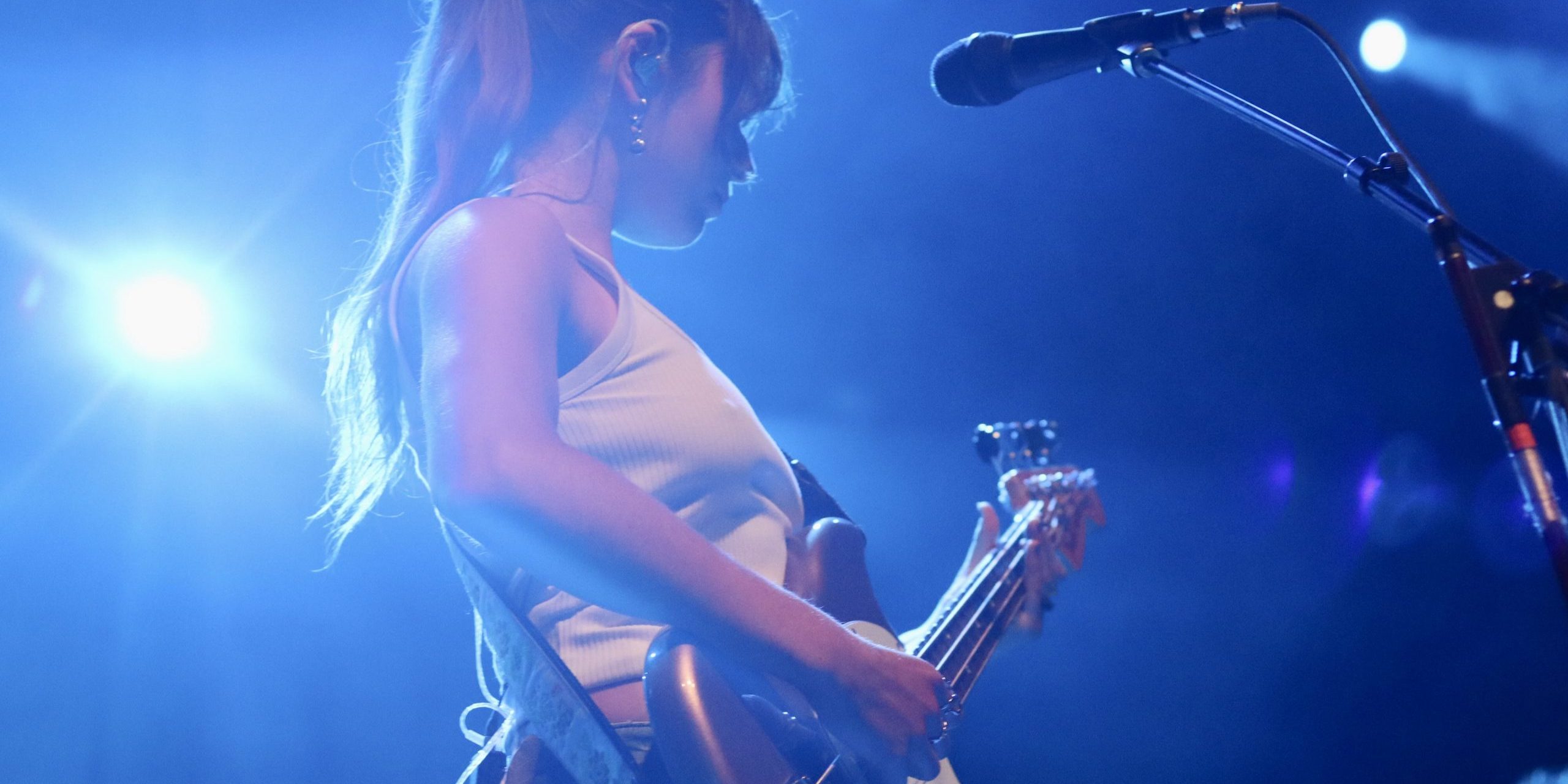Photos by Kayalani DeGrave
Black Country, New Road has charged full steam ahead in a new direction. The post-rock band, comprised of six virtuoso multi-instrumentalists, was formed back in 2018 in Cambridge, England. Since the departure of their former lead singer, Isaac Wood, in 2022, the band has pivoted from Wood’s ghostly, melodramatic, ‘speak-singing’ to more narrative songs with operatic vocals provided by Tyler Hyde (bass, nylon guitar, piano, tenor recorder), Georgia Ellery (mandolin, violin, guitar, tenor recorder) and May Kershaw (keyboard, accordion). In addition to having the tightest live performance I have ever seen, the band also performed ceremonial magic, permanently altering the consciousness of everyone in the audience.
A little over a month after the release of their third studio album, Forever Howlong, the band embarked on their North American tour. I was lucky enough to be able to catch them at the Observatory in Santa Ana, a venue that looks like a combination of BJ’s Restaurant and a laser tag arena. Thus, I tried to approach the event with no expectations. Admittedly, the band’s second studio album Ants From Up There is one of my all-time favorites, but I hadn’t given adequate attention to Forever Howlong. This of course changed due to the sheer power of the art rock band. I now love the whole of their discography so much it hurts.
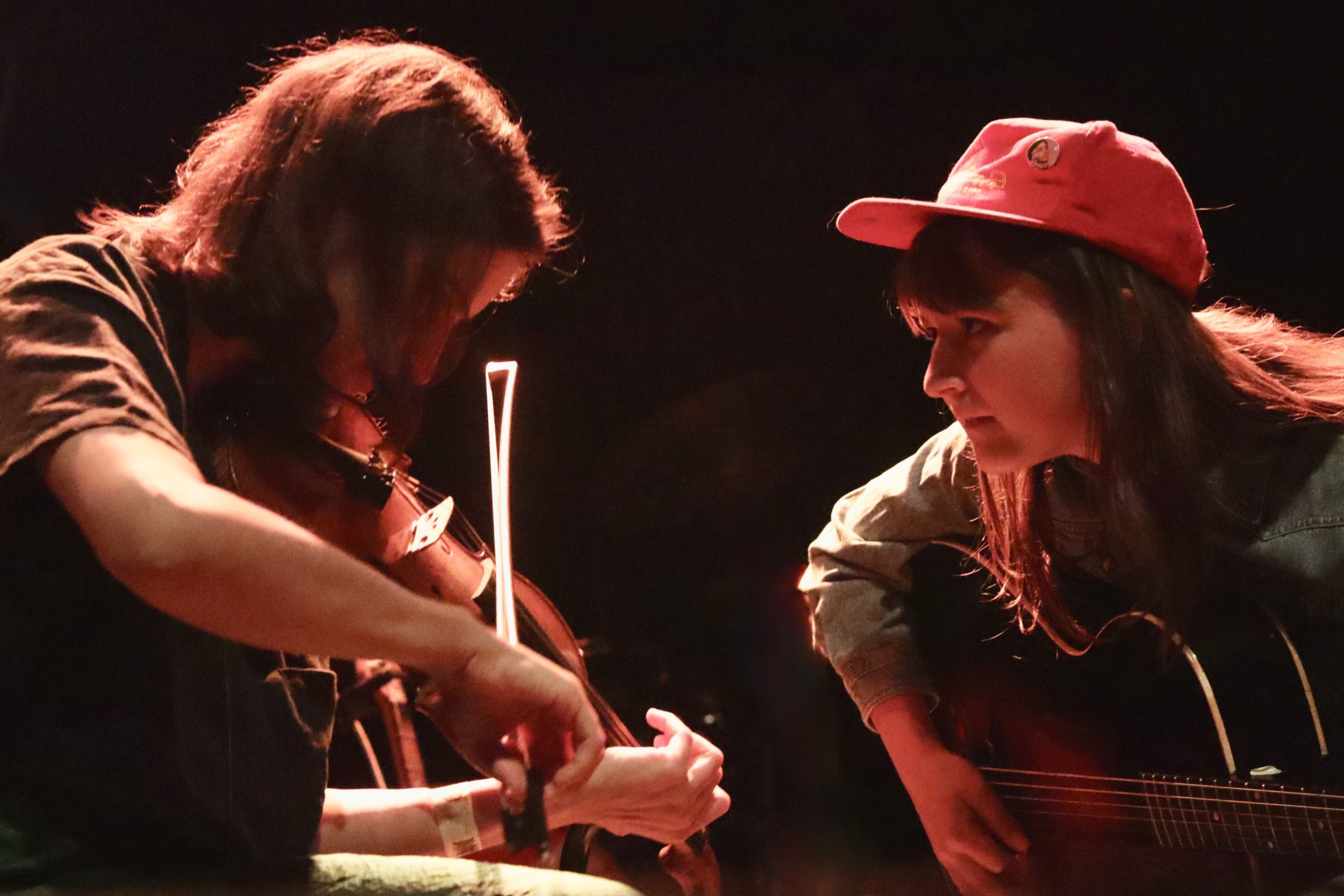
The openers, Brooklyn-based folk duo Nora Brown and Stephanie Coleman, transported me back to the time when the Appalachian Mountains and the Scottish Highlands were the same mountain range. Brown, born in 2005, has a voice that is storied and wise, accompanied by a unique banjo style, different from the typical Scruggs (3-Finger) or Clawhammer styles. Her guitar playing was adroit enough to be impressive, but not too complex to be gaudy. For a handful of the tracks, she played a fretless banjo constructed by her father. Coleman supplied mythical harmonies alongside prodigious fiddle playing. Almost all of the songs they performed were American traditional tunes, passed down through generations of musicians in the South. They told the story of where and from whom they learned the particular arrangements of songs such as “Copper Kettle.” During the more technical instrumental pieces like “Lady of the Lake,” the women locked eyes and stayed perfectly in sync despite the audience (myself included) stomping and clapping out of time. Brown treats American traditional music with the utmost reverence, but her musical style is captivating enough for contemporary audiences unfamiliar with the genre.
After the duo finished, I leaned over to the group of UCLA Radio managers who so kindly gave me a ride (shoutout Jake, Ethan, and Kayalani) and I whispered, “I feel God. She is an old Scots-Irish woman who brews whiskey in her basement and feeds me N/A Guinness from a baby bottle.” They laughed in response, but I know they felt it too.
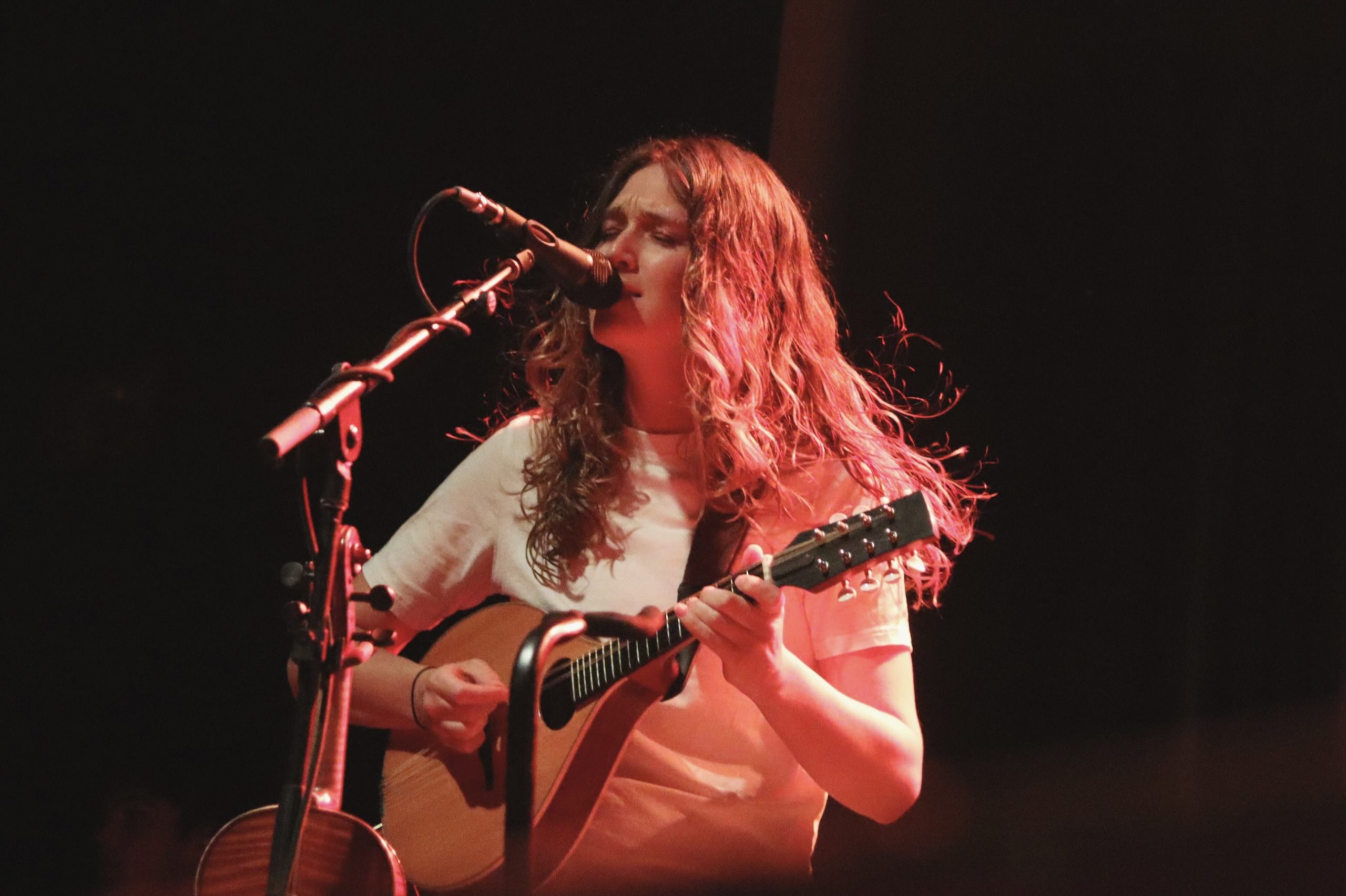
In discussing Black Country, New Road as a live band, it’s impossible to articulate the scale of the grandeur and the power of their sorcery. Focusing on the individual performance of any of the members somehow reduces their importance. To borrow a tired simile, BC,NR functions like the human body, with each respective organ working in conjunction with the others to ensure its function and beauty. Nevertheless, focusing on the individual members makes for the most coherent structure.
Tucked away in a corner on stage right, Georgia Ellery plucked out winding violin lines as the horsehair on her bowstring frayed. Her mandolin parts danced with Luke Mark’s acoustic guitar brilliantly. Her singing and songwriting on the lead single, “Besties,” is understated and kind. Her presence is both reserved and yet it demands complete and utter attention.
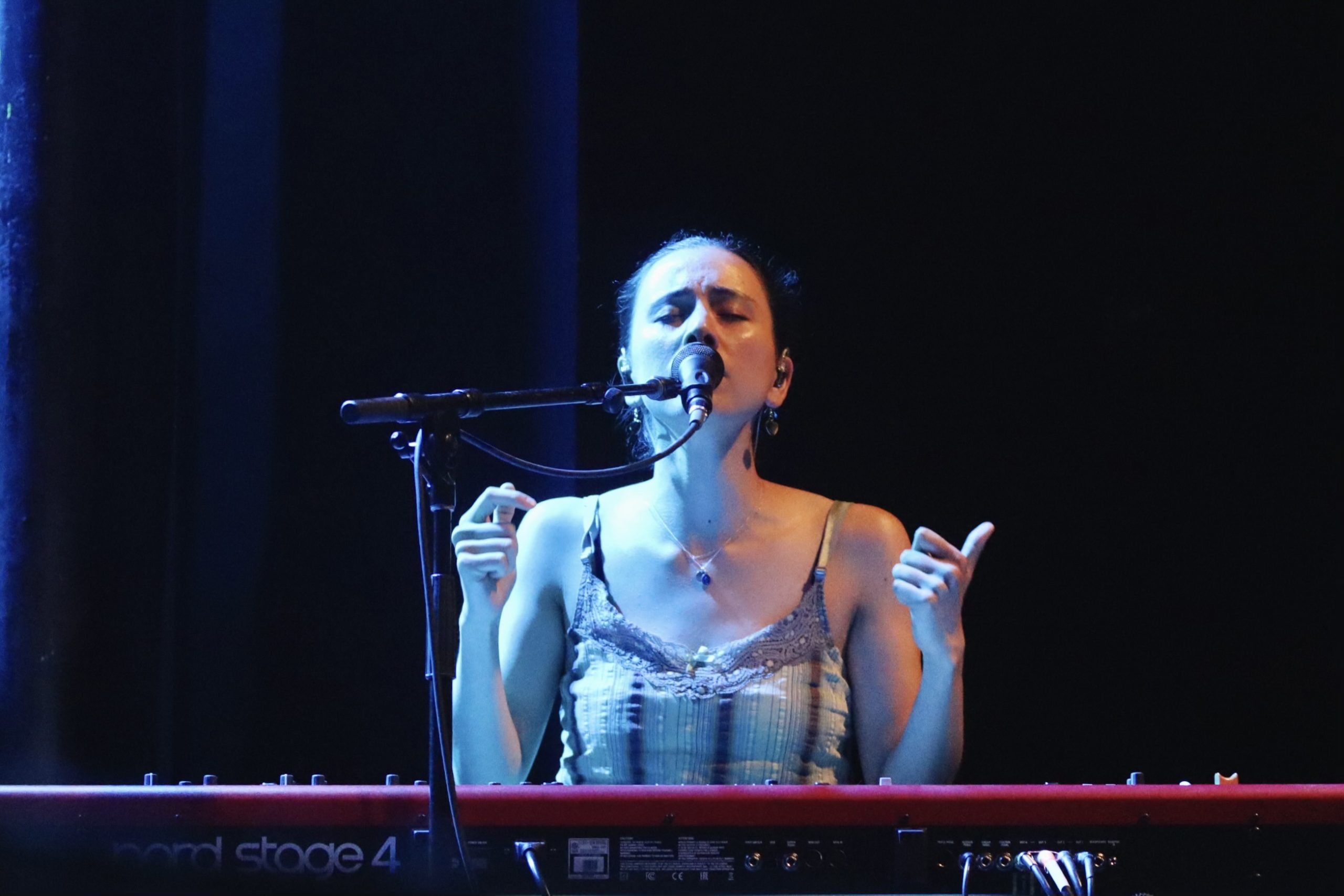
Tyler Hyde is a jack of all trades. Situated on center stage, she floated seamlessly between instruments and roles. Before the intensely tragic (and beautifully written) song, “Nancy Tries to Take The Night,” she sipped from a watermelon Whiteclaw that matched the watermelon decal on her bass. Her bass playing ranged from punchy when she played with a pick to droning when she whipped out a bow. The crowd erupted when she started playing the coming-of-age song, “Happy Birthday,” and I was moved to tears when she took the piano for “Socks.” Right before the last song of the night, she stated in solidarity with Palestine that, “More importantly than anything that’s happening on this stage, we need to be thinking about what’s happening in Gaza and the West Bank. Never stop talking about it.”
The band is a collective and has no leaders, but May Kershaw acted as a high priestess with her sheer command of energy and attention. The audience, primarily millennials in sweaters and teenagers with mullets, went completely still whenever she sang. During “For the Cold Country,” it was tough to tell if she was conducting the three-part vocal arrangements or casting a somatic spell with her hands. Who’s to say? On the titular track, “Forever, Howlong,” she softly sang while playing the accordion and piano sometimes all at the same time, while the rest of the band whipped out tenor records, emulating a pipe organ.
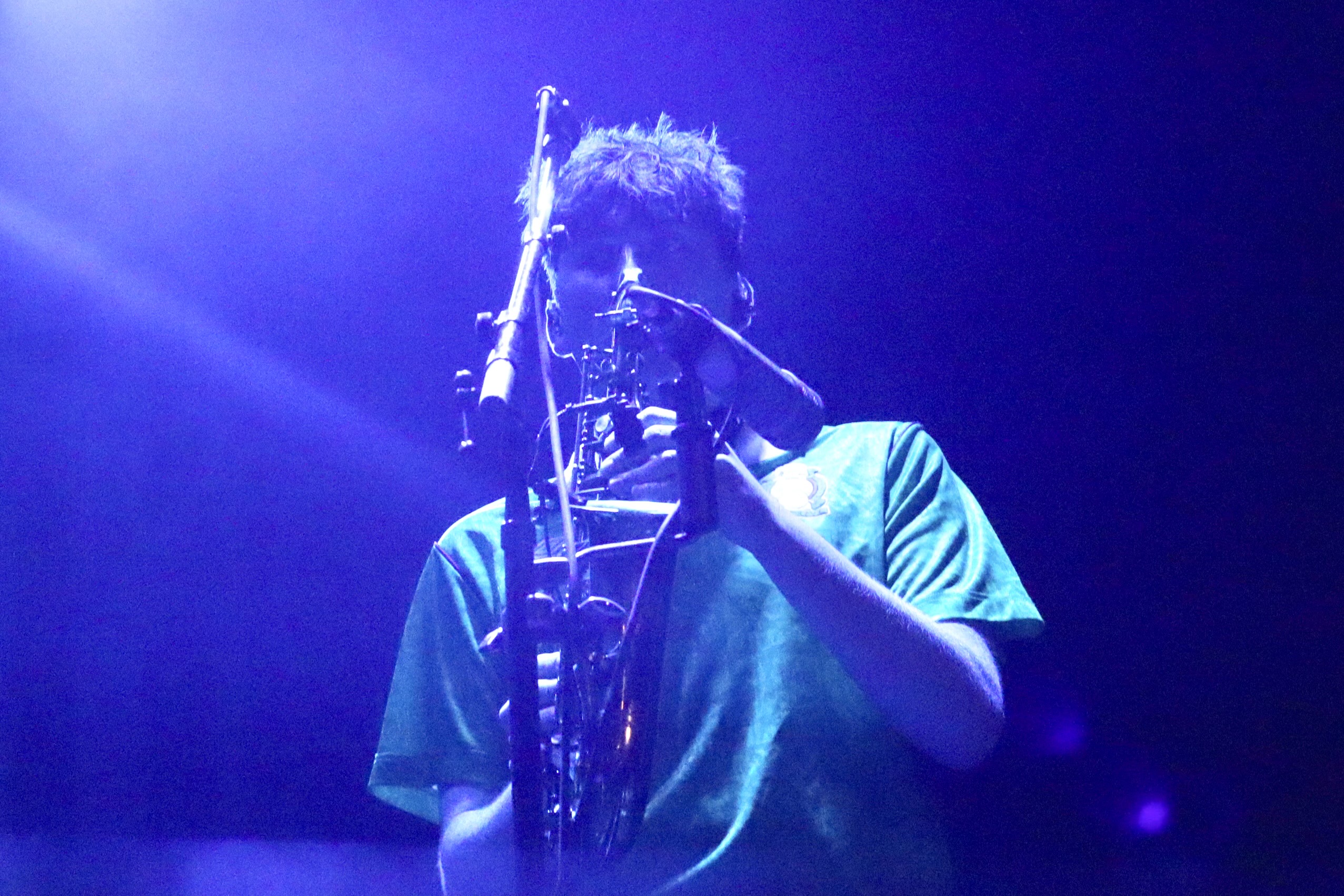
The boys in the back were abundant in aura as well, each of them providing elements that have come to define the band’s unique sound. Charlie Wayne (drums, banjo, tenor recorder) laid down complex math-rock rhythms and guided the dynamics with his cymbal splash-outs. His banjo playing interplayed brilliantly with Hyde’s voice on the tragic “Nancy Tried to Take the Night,” before he took up his drums to ramp up the track. Luke Mark (guitar, lap steel, tenor recorder) rooted the band in the earth, while the other instruments branched off into the sky. I was most impressed by his slippery slide guitar on “Mary,” adding a layer of mysticism to the ethereal vocal harmonies. Lewis Evans (saxophone, flute, tenor recorder) blew the widely varied woodwind lines, which the group is known for. His saxophone, along with Ellery’s violin, draws from Klezmer, a musical tradition of the Ashkenazi Jews in central Europe. The compositions performed live are nothing short of spellbinding.
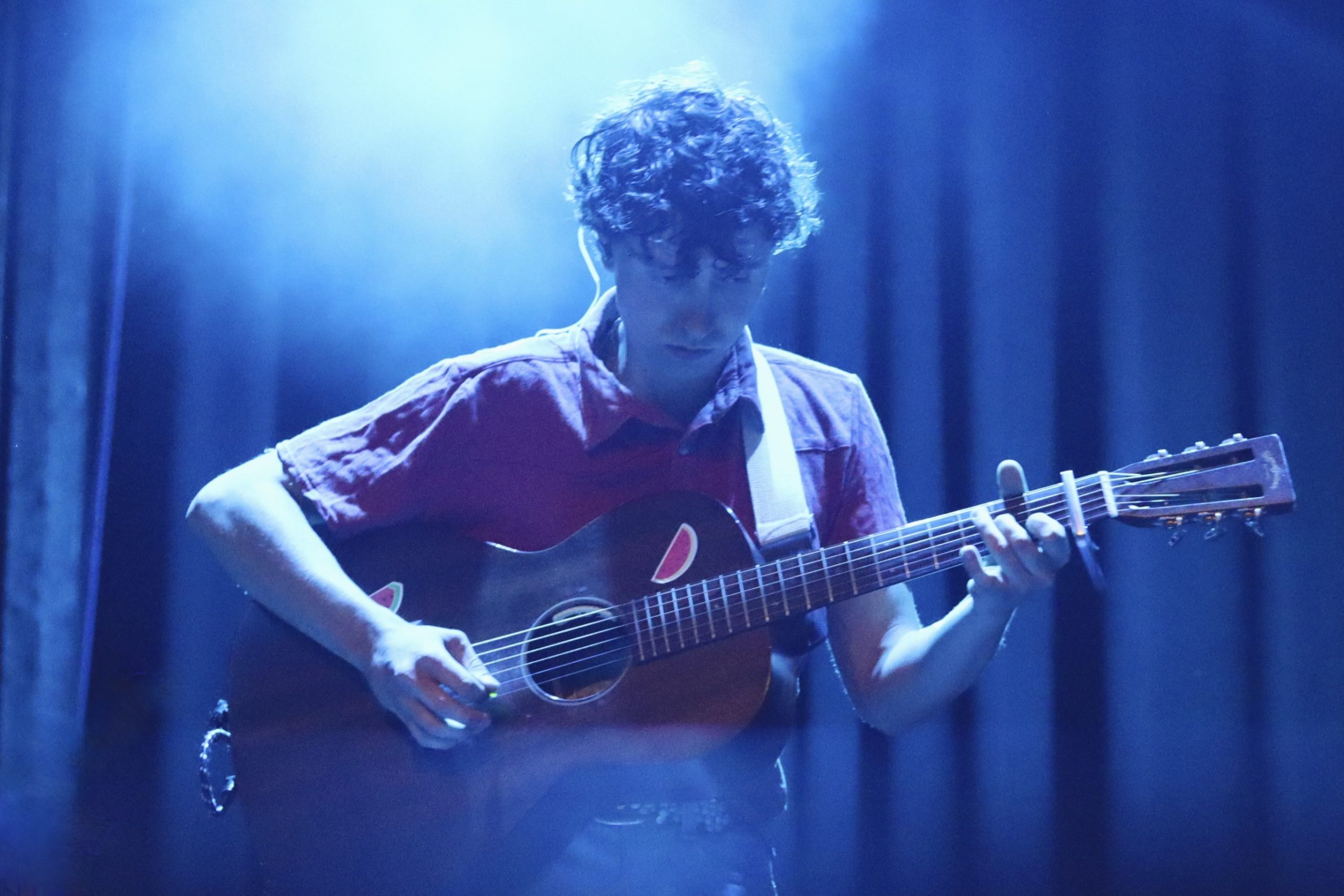
You may be saying to yourself, “Randy, we get it–the show was amazing. You obviously love these artists, and you’re certainly not short of five-dollar adjectives comparing the performance to magic. Have you learned nothing from freshman composition classes? Get to the point, you long-winded loquacious chap you.” While yes, I have been rather indulgent in some of my language choices, I must emphasize that I am being literal in my descriptions of the performance as witchcraft. Writer, mall Santa look-alike, and magician, Alan Moore, explains that “Art is, like magic, the science of manipulating symbols, words, or images, to achieve changes in consciousness.” Black Country, New Road has gone beyond that. They did something mighty transcendental. BC,NR made the unromantic parking lot in suburban Orange County feel like England in the thirteenth century. Their performance commanded a hyper-presence. I struggled to take notes for this article because the whole of my spirit was on the stage.

